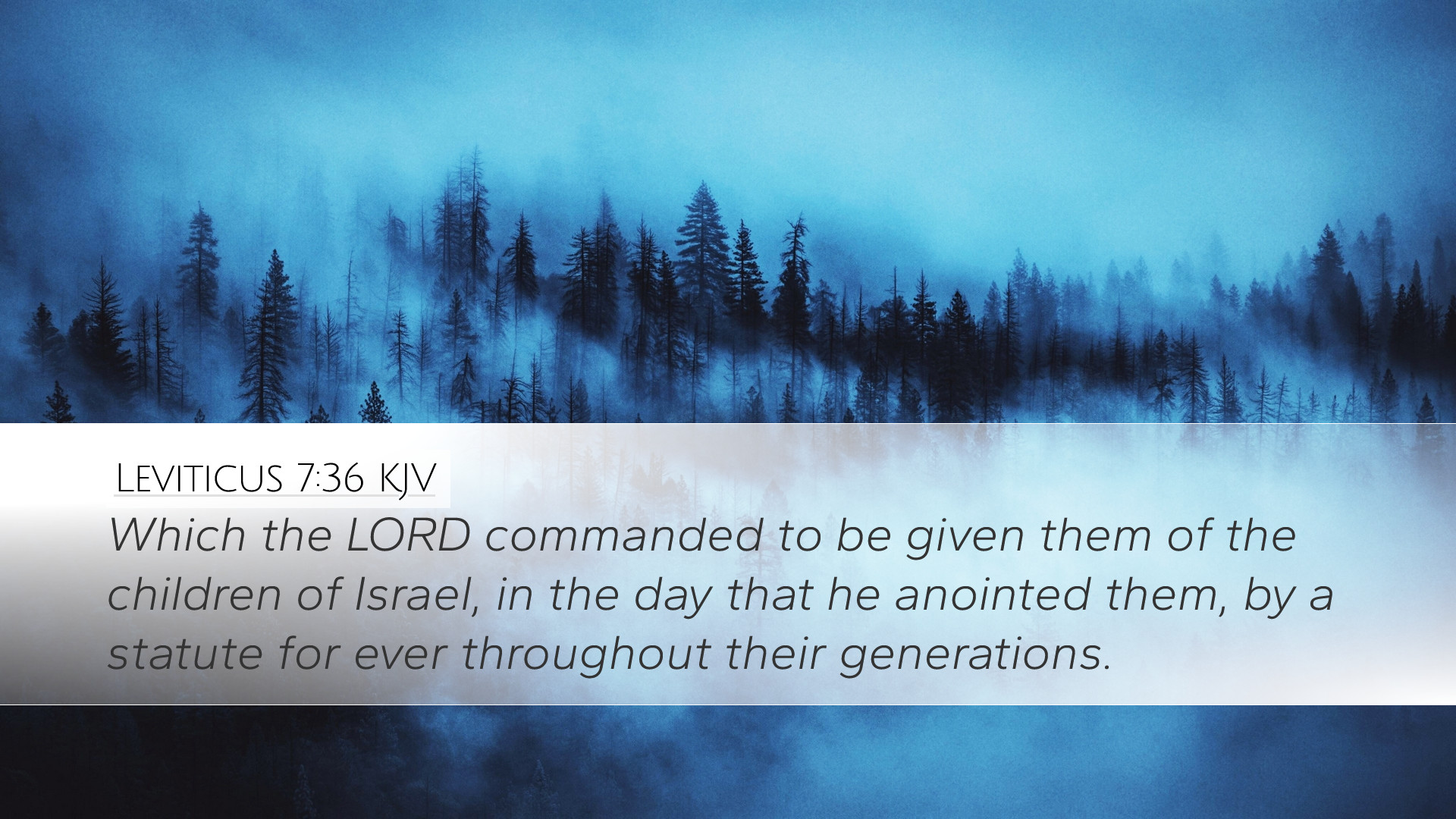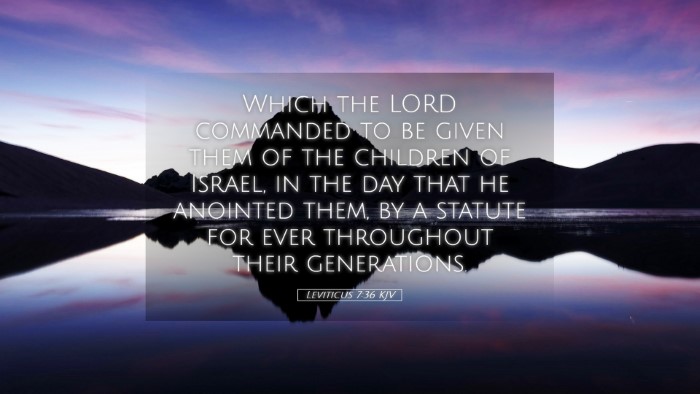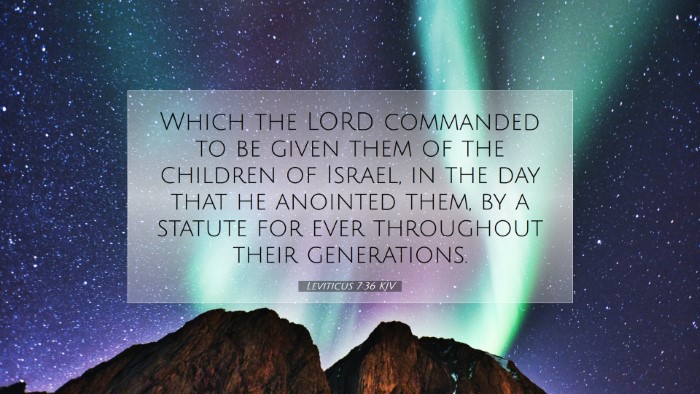Commentary on Leviticus 7:36
Verse: Leviticus 7:36
"Which the Lord commanded to be given unto them of the children of Israel, in the day that he anointed them, by a statute forever throughout their generations."
Introduction
The book of Leviticus is often viewed as a manual for priests and for the people of Israel regarding issues of holiness, worship, and sacrifice. In Leviticus 7:36, we find a specific instruction about the portions of the sacrifices that were to be given to the priests. This verse highlights the divine origin of these regulations and emphasizes the continuity and permanence of God's commandments through the priestly lineage.
Contextual Background
The background of Leviticus is crucial for understanding this verse. It addresses the ceremonial laws of Israel, established after they had been delivered from Egypt. Chapter 7 specifically discusses the laws concerning peace offerings, and this verse underscores the significance of the priesthood and their sustenance through the offerings of the people.
Exegesis and Analysis
-
Divine Command and Authority
Matthew Henry notes that the instructions regarding the offerings are not merely suggestions but commands from God. This reflects the need for adherence to divine statutes, indicating that the Israelites were to recognize that their worship practices were ordained and mandated by God himself.
-
The Role of Priests
According to Albert Barnes, this verse emphasizes the significance of the priesthood in the community worship of Israel. The people were to actively support the priests as intermediaries, which is foundational for understanding the relationship between laity and clergy in ancient Israel.
-
Permanence of the Statute
Adam Clarke elaborates on the phrase "by a statute forever throughout their generations," indicating the lasting nature of these ordinances. The ongoing provision for the priests is a reminder of God's continuous guidance and provision for His chosen leaders.
Theological Implications
The directives in Leviticus 7:36 have profound theological implications regarding the nature of God's covenant with Israel.
-
Covenant Relationship:
This verse illustrates God's commitment to the priestly lineage, signifying that the priests' role is critical for sustaining the covenant relationship between God and Israel.
-
Worship and Community:
The allocation of the offerings to the priests shows the interconnectedness of worship and community life, teaching that worship involves mutual support among God's people.
-
Christological Reflection:
Many scholars draw parallels between this Old Testament priestly provision and the New Testament priesthood of Christ, suggesting that just as the priests were sustained by the offerings, so too believers are sustained by Christ's sacrifice.
Practical Applications
The instructions in Leviticus provide valuable lessons for modern believers.
-
Respect for Leadership:
Understanding the importance of God's ordained leaders encourages the church to support its pastors and spiritual leaders.
-
Covenant Living:
Believers today are encouraged to reflect on their commitments to God and to one another, recognizing the responsibility to maintain the community of faith.
-
Generosity in Worship:
The practice of giving offerings in worship fosters an attitude of generosity and gratitude among church members.
Conclusion
Leviticus 7:36 encapsulates significant themes regarding divine command, priestly responsibility, and the continuity of worship practices. For pastors, students, theologians, and Bible scholars, it serves as a reminder of the importance of adhering to God's statutes and the deep connection between worship and community. Reflecting on these insights encourages a deeper understanding of the text and its implications for faith and practice in today's church.


